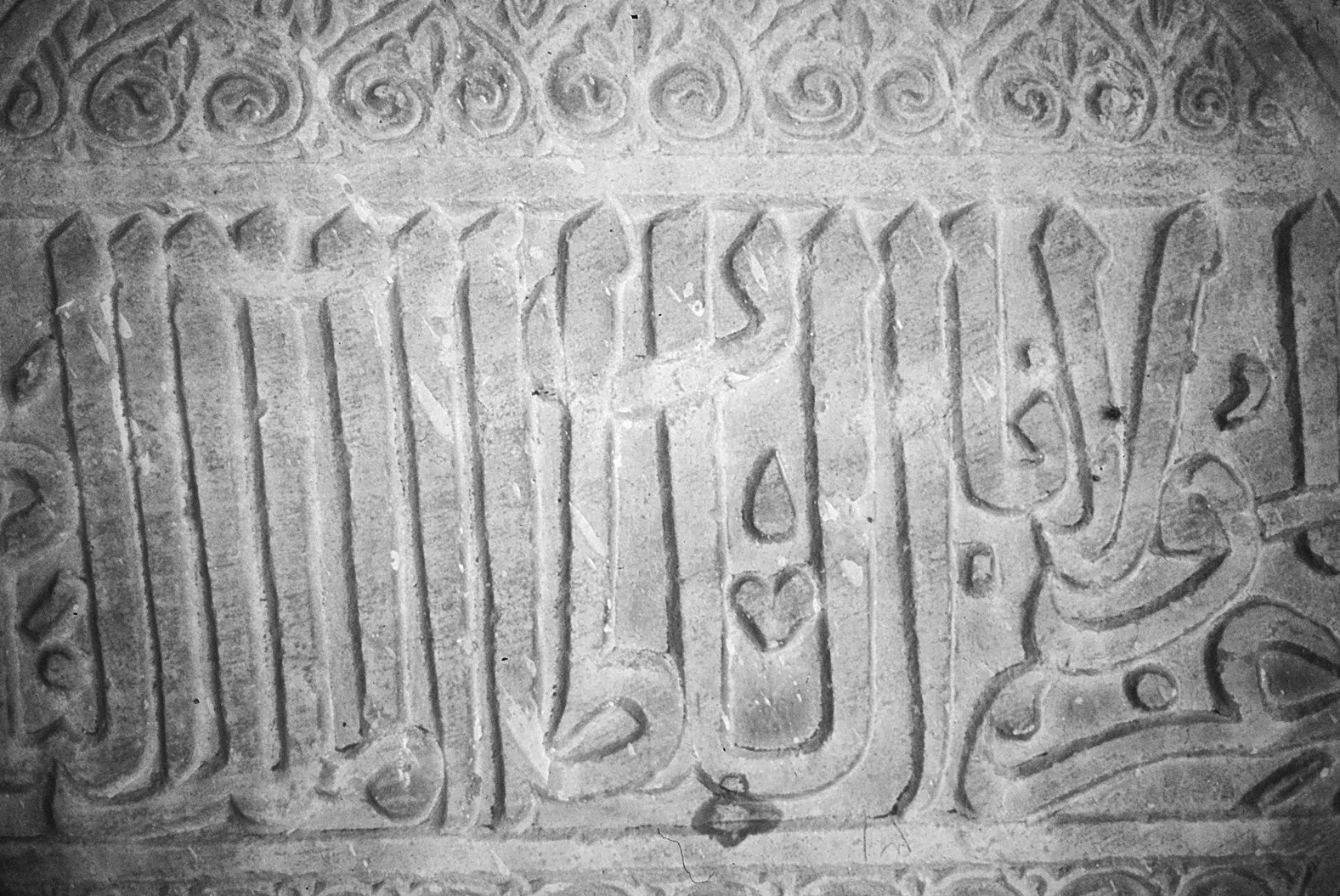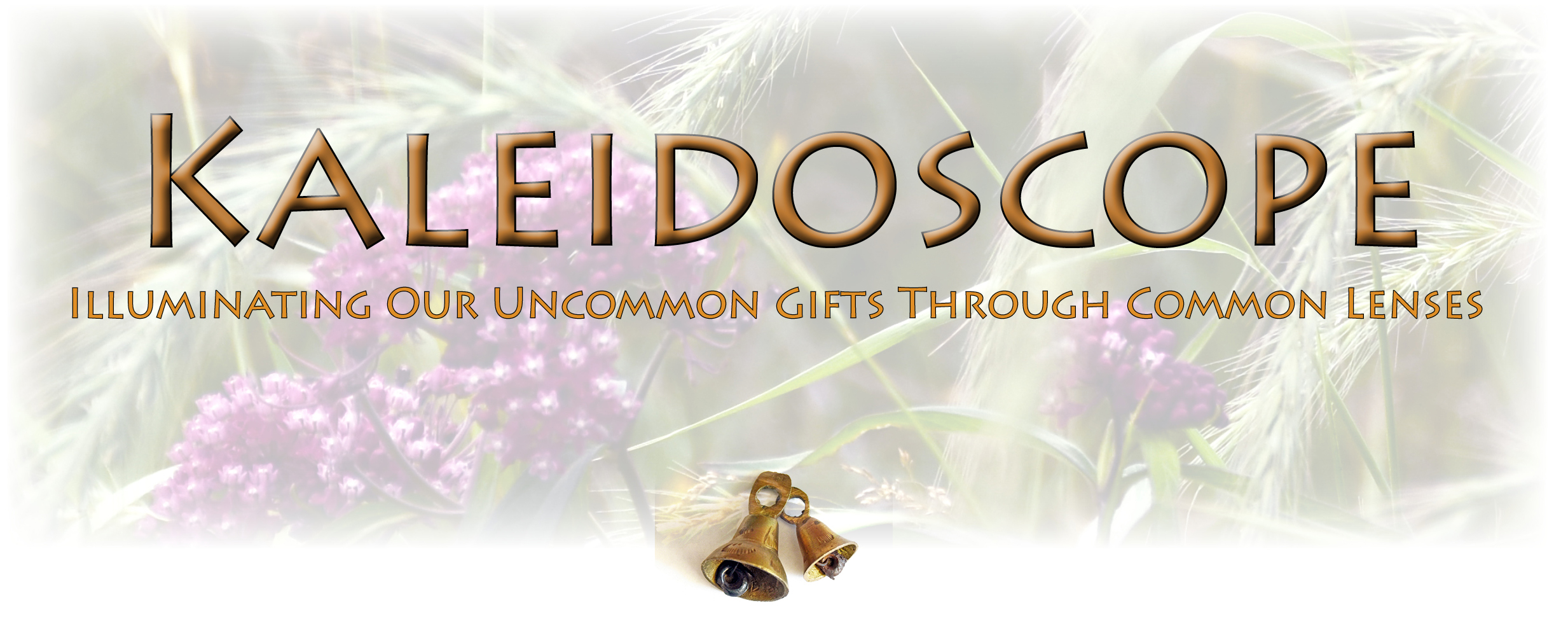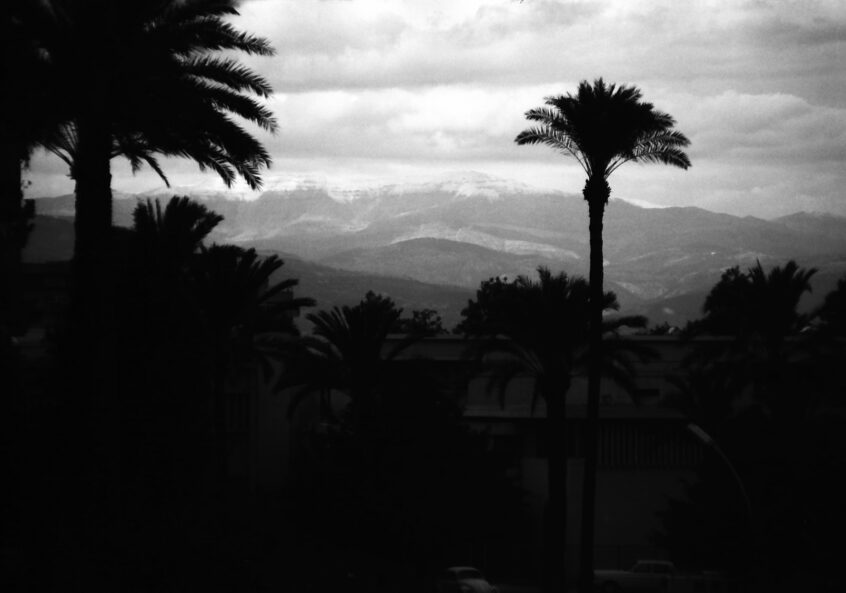A view of the mountains from the hallway outside our classroom.
Hopelessness engenders radicalization. – Christians Amanpour on PBS
The purpose of terrorism is to elicit an over-reaction. ~ Fareed Zakaria on CNN
Once I arrived in Beirut, I settled in to the school, my classroom which had an entire wall of windows facing the Mediterranean Sea. My dorm room (I was a counselor) was across the courtyard. I met another staff person who, it turns out, was from the same Minnesota town as I was. Our parents lived about a mile from each other and we even went to the same high school. Yet, we had to come to Beirut to meet. She invited me to go horseback riding with her. As we rode along some trails just outside of the city, we came to a fence line. I found what was on the other side of the fence to be shocking. It was a Palestinian refugee camp. I had no idea! I remember feeling embarrassed and indulgent that I was able to leisurely go horseback riding – which I paid for – while clearly the people in the camp were living in such poor conditions. That was my first and last horseback riding experience in Lebanon.
I also learned that there was a significant conflict between the Jordanian government and the PLO (Palestinian Liberation Organization). There were hundreds of thousands of Palestinians living in Jordan at that time. In mid-September, Jordan announced that the Palestinians were no longer welcome and that they had to leave. Where could they go? Many came to Lebanon. In late September, amidst his role as mediator between Jordan and the PLO, Nasser, then president of Egypt, died suddenly. This sent the whole region into limbo as to what would happen next.
As for me, I experienced my first lockdown. We were not allowed to leave the school compound and school was closed for several days. Before that, shortly after I arrived I had received notification that I was to keep a bag packed and ready to go in case of evacuation. My instructions were that I would be transported to the port where I would board a boat for Cyprus. During those days, I joined other staff in the staff lounge almost every hour on the hour to listen to BBC news. When I look back, I notice that I was not scared. It was all a breathtaking adventure!
I learned that one of the staff was Palestinian so I introduced myself and asked her if she’d be willing to tell me her story. I thought it might help me understand what was going on in this conflict. What I remember most was that she told me her family had left Palestine in 1948 following the formation of Israel. They were squeezed out. From Wikipedia: “….around 700,000 Palestinian Arabs or 85% of the total population…fled or were expelled from their homes….” She talked about how her family had lived in a rural Palestinian village for about 1000 years. They had a simple life on a small property that included their home, a few olive trees, some goats, a donkey, and a vegetable garden. Their history, their comfortable day-to-day existence, their long-held relationships, and their sense of dignity over centuries all vanished. They eventually settled in a village in the south of Lebanon.
I remembered the refugee camp I had witnessed on the edge of the city and that the energy I had picked up from the people there was despair and helplessness. I thought of the young PFLP hijackers, some of whom were about my age. And I remember musing about how if my family lost everything and lived in a camp where there was little or no hope of ever being self-sustaining again, might I have entertained the possibility of becoming a hijacker myself? As Christiane Amanpour said in closing Amanpour and Company on PBS one night recently: “Hopelessness engenders radicalization.”
 Beautiful carved stone calligraphy
Beautiful carved stone calligraphy
Photos by Barbara
Scans of 35mm slides
Story publised in “This Exceptional Moment”
Kaleidoscopelenses.com
October 31, 2023

